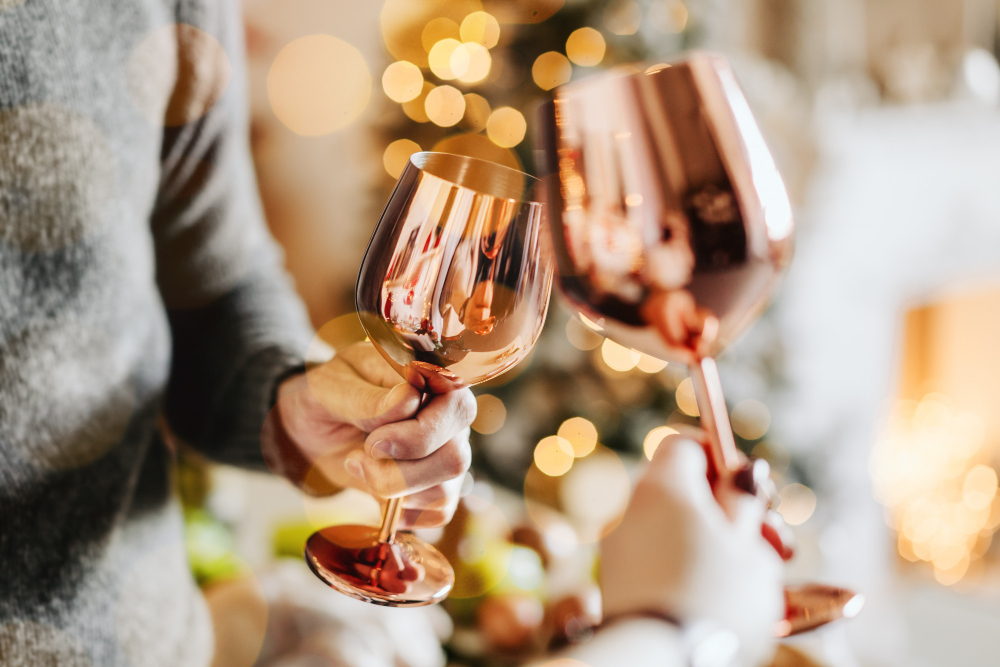In Spain, Christmas is typically celebrated with a mix of religious and secular traditions. Many people attend Mass on Christmas Eve, which is called “La Misa del Gallo” (The Mass of the Rooster) in Spanish, and spend the evening with their families. Traditional foods eaten on Christmas Eve include seafood, such as cod, and an assortment of tapas.
Meals on Christmas Day in Spain
On Christmas Day, families and friends usually gather together to exchange gifts, eat a large meal, and enjoy each other’s company. Christmas dinners in Spain vary by region, but some traditional dishes that are commonly served include roast pork, roast lamb, and roast potatoes. Other dishes that might be found on a Spanish Christmas dinner table include seafood, such as prawns or lobster, as well as an assortment of cured meats, cheeses, and olives. There are also many delicious desserts that are associated with Christmas in Spain, such as turrón.
Turrón Christmas Dessert
Turrón is a traditional Spanish Christmas dessert that is enjoyed throughout Spain and in other parts of the world where Spanish cuisine is popular. There are two main types of turrón: soft turrón and hard turrón. Soft turrón is made with almonds, honey, and egg whites, and has a soft, chewy texture. Hard turrón, also known as turrón duro, is made with almonds, honey, and sugar, and has a hard, brittle texture. Both types of turrón are typically made in rectangular blocks and are often sliced and served as a dessert. They can be found in most supermarkets and specialty food stores in Spain during the Christmas season.
Celebrating Reyes
Spanish children also celebrate Christmas by singing carols, called “villancicos,” and by participating in “Three Kings Day” (El Dia de los Reyes) on January 6th.
In Spain, “Three Kings Day” (El Dia de los Reyes) is a major holiday that is celebrated on January 6th. It is also known as “Epiphany” and marks the end of the Christmas season.
On Three Kings Day, children in Spain traditionally receive gifts from the “Three Wise Men” (Los Reyes Magos), who are believed to have brought gifts to the Baby Jesus. Children often leave out shoes or special bags for the Three Wise Men to fill with gifts, which are delivered on the morning of January 6th.
In addition to receiving gifts, many people in Spain participate in parades and reenactments of the arrival of the Three Wise Men. These parades often feature floats with actors dressed as the Three Wise Men, as well as camels and other animals. The parades culminate with the arrival of the Three Wise Men at a central location, where they distribute sweets and small gifts to children.
Three Kings Day is also a time for families and friends to come together and enjoy meals and other celebrations. Many people in Spain eat a special cake called a “roscón de reyes” on this day, which is a sweet bread that is decorated with candied fruit and often contains a small figurine or trinket inside.
Religious celebrations during the Christmas Holidays in Spain
Mny Spaniards attend Mass on Christmas Day. Christmas is a major holiday in the Catholic faith, and attending Mass is an important part of the celebration for many Catholics. In Spain, as in other predominantly Catholic countries, it is common for people to attend Midnight Mass on Christmas Eve, and then to attend another Mass on Christmas Day. Christmas is also a time for family gatherings and festive meals, and these traditions are an important part of the holiday celebration in Spain.
Religious processiones during Christmas in Spain
During the Christmas season in Spain, it is common for cities and towns to hold processions in honor of the holiday. These processions typically involve a large number of people walking through the streets, carrying statues or images of religious figures such as the Virgin Mary or baby Jesus. The processions may also include musicians, dancers, and other performers, and are often accompanied by a festive atmosphere with food, drink, and other celebrations. In some parts of Spain, such as Andalusia, the processions are a major part of the Christmas celebrations and can be quite elaborate, with ornately decorated floats and costumes. In other parts of the country, the processions may be more modest in scale.



